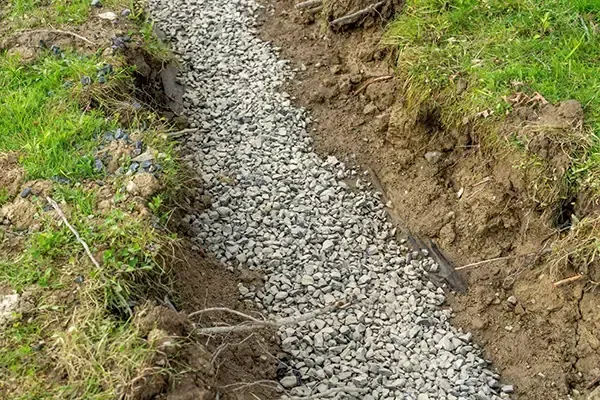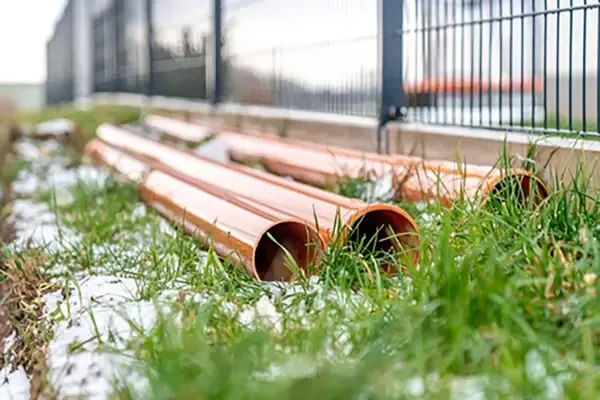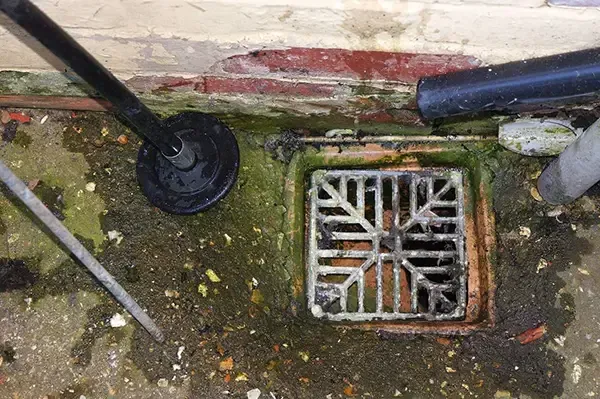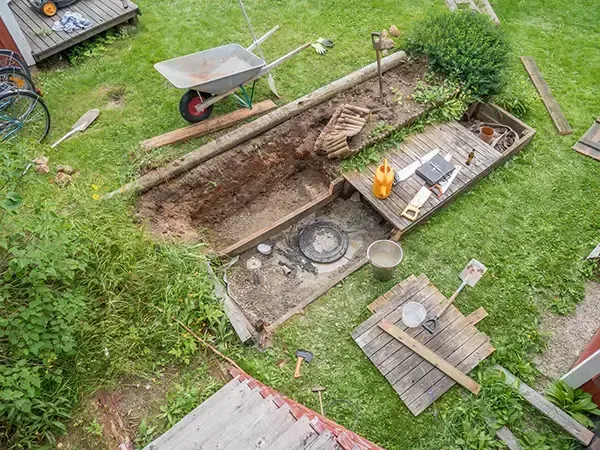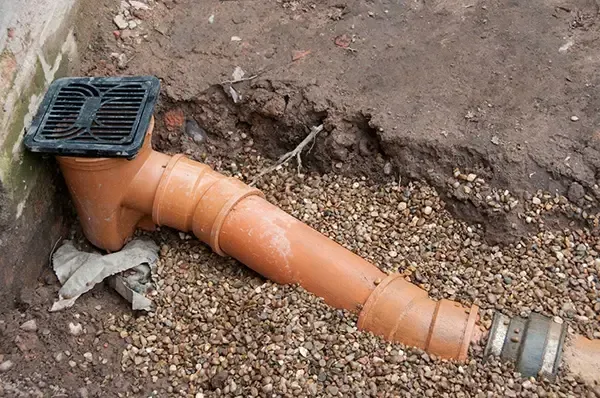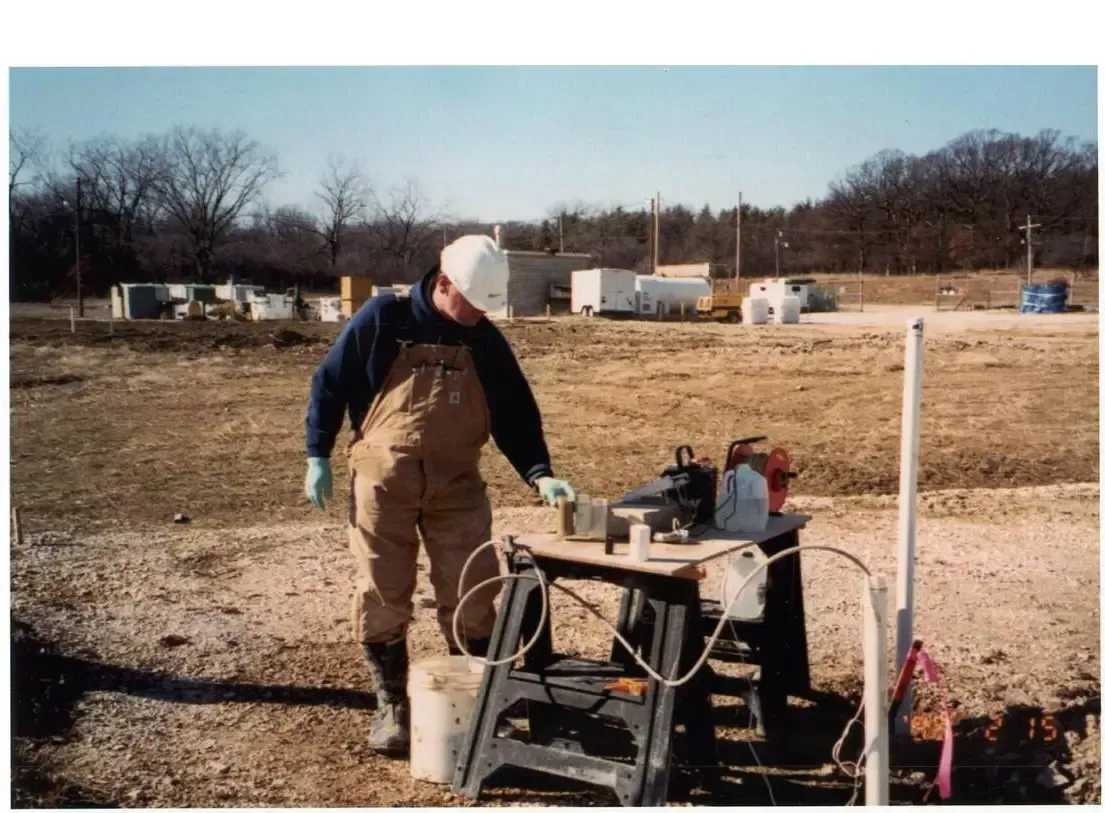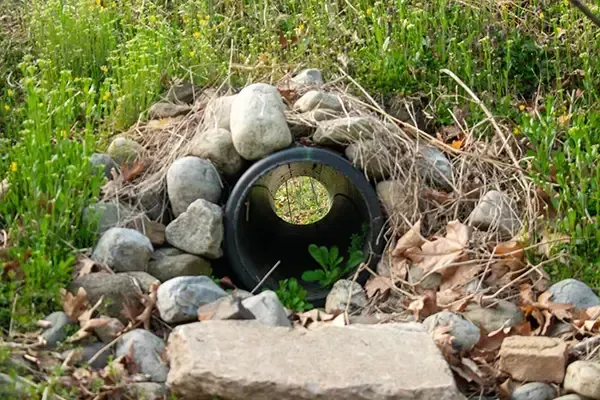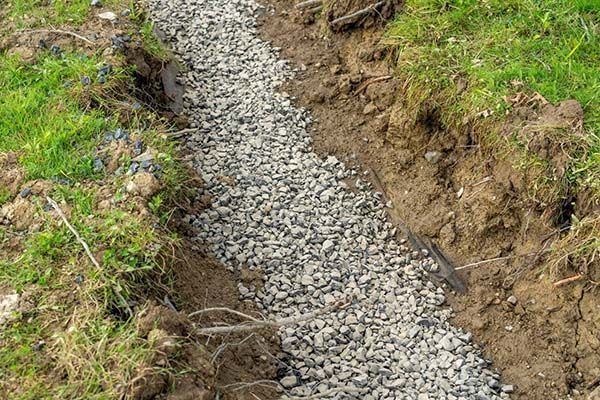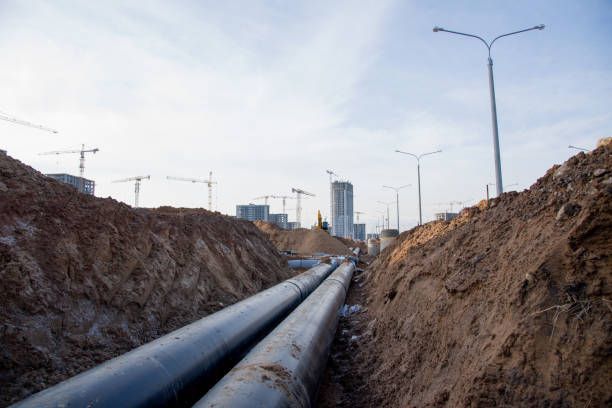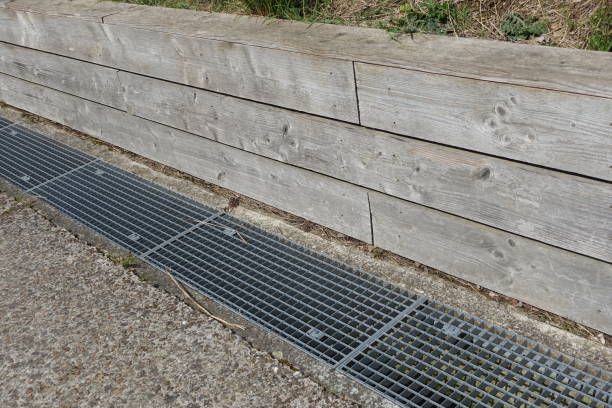How Do French Drains Reduce the Risk of Mold and Mildew?
If you're dealing with persistent moisture issues in your home, you might want to consider how French drains can be a solution.
These systems channel water away from your foundation, significantly reducing the chances of mold and mildew taking hold in damp areas like basements or crawl spaces.
By maintaining a drier environment, you not only protect your structure but also improve indoor air quality.
However, understanding the mechanics behind French drains is crucial to fully appreciate their benefits. So, what exactly makes them so effective in moisture management?
Understanding French Drains: A Comprehensive Guide
When it comes to managing excess water around your home, understanding French drains is crucial.
These effective drainage systems play a vital role in protecting your property from the detrimental effects of moisture.
What is a French Drain?
A French drain is a subsurface drainage system designed to effectively redirect water away from your home's foundation.
- Key Components:
- A trench is excavated around the perimeter of your home or in areas prone to water accumulation.
- This trench is then filled with gravel or crushed stone.
- A perforated pipe is installed within the gravel bed.
- How it Works:
- Water seeps through the gravel and into the perforated pipe.
- The pipe then directs this water away from your foundation, typically towards a storm drain or a designated drainage area.
Why Consider a French Drain?
- Effective Water Management: French drains provide a highly effective solution for managing excess water around your property, including surface water runoff and groundwater.
- Foundation Protection: By effectively redirecting water, French drains minimize hydrostatic pressure on your foundation, preventing potential damage like cracks, settling, and bowing.
- Improved Indoor Air Quality: By reducing moisture levels, French drains help prevent mold and mildew growth, improving indoor air quality and creating a healthier living environment.
- Enhanced Property Value: A well-maintained property with effective drainage is more appealing to potential buyers, potentially increasing your property's resale value.
By understanding the principles of French drain operation and considering your specific property needs, you can make informed decisions regarding water management and protect your home from the potential damage caused by excess moisture.
How French Drains Work
French drains are an effective subsurface drainage system designed to manage water flow around your property and prevent water damage.
How they work:
- Trench Excavation: A trench is excavated along the perimeter of your foundation or in areas prone to water accumulation.
- Gravel Bed: The trench is filled with a layer of gravel or crushed stone, creating a porous medium.
- Perforated Pipe Installation: A perforated pipe is installed within the gravel bed. The perforations allow water to enter the pipe from the surrounding soil.
- Water Collection and Diversion: As water accumulates in the trench, it seeps through the gravel and enters the perforated pipe. The pipe then directs this water away from your foundation, typically towards a storm drain or a dry well.
Key Benefits:
- Reduces Water Accumulation: Effectively prevents water from pooling around your foundation, minimizing the risk of basement flooding and soil erosion.
- Minimizes Hydrostatic Pressure: Reduces hydrostatic pressure on your foundation, preventing potential damage like cracks and bowing.
- Improves Soil Drainage: Improves soil drainage by allowing excess water to drain away, reducing the risk of soil saturation and potential foundation problems.
- Prevents Mold and Mildew Growth: By reducing moisture levels, French drains help prevent the growth of mold and mildew, improving indoor air quality.
By effectively managing water flow, French drains provide a reliable and long-term solution for protecting your home from the detrimental effects of excess moisture.
Benefits of French Drains for Mold Prevention
French drains play a crucial role in preventing mold growth by effectively managing moisture levels around your home.
How French Drains Prevent Mold:
- Reduced Moisture Levels: By efficiently directing water away from your foundation, French drains minimize moisture accumulation in the soil and around your home.
- Minimized Hydrostatic Pressure: Reduced hydrostatic pressure on the foundation prevents water seepage into your basement or crawl space, further minimizing moisture levels.
- Improved Air Quality: By reducing moisture levels, French drains contribute to improved indoor air quality by minimizing the risk of mold and mildew growth.
Health Benefits:
- Reduced Exposure to Mold Spores: Mold spores can trigger allergic reactions and respiratory problems. By preventing mold growth, French drains contribute to a healthier living environment for you and your family.
By effectively managing water drainage and minimizing moisture levels, French drains provide a proactive solution for mold prevention, safeguarding the health and well-being of your household.
French drains are a highly effective solution for managing moisture and preventing mold and mildew growth, offering numerous benefits for your home and family.
By reducing water accumulation, hydrostatic pressure, and moisture levels around your foundation, they protect your property from water damage and create a healthier indoor environment.
With their ability to improve air quality and minimise exposure to harmful mold spores, French drains provide long-term protection and peace of mind, ensuring your home remains a safe and comfortable space for years to come.
